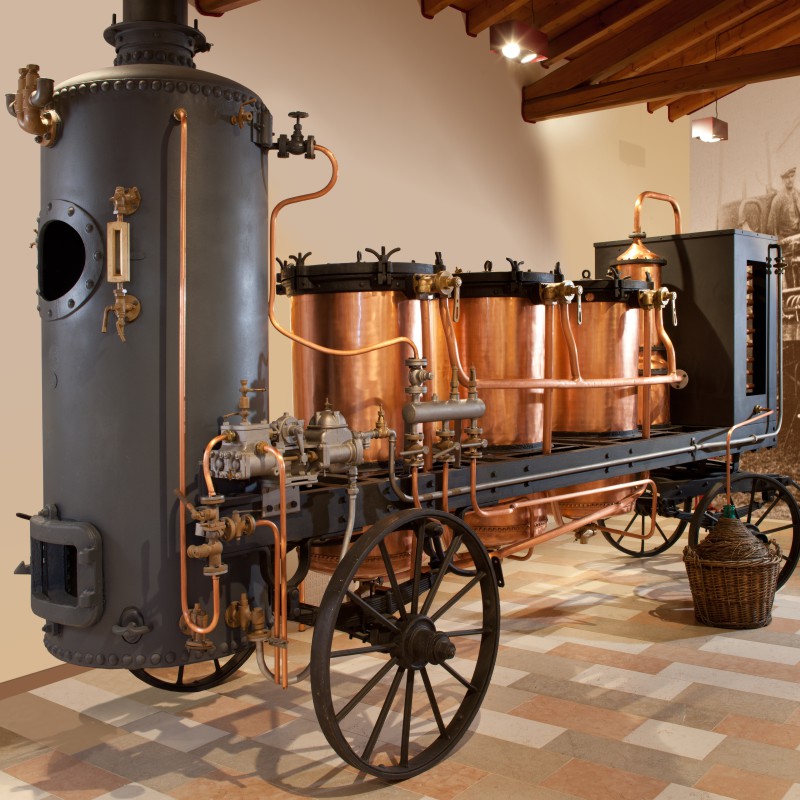Mobile distillation
Until the 19th century, distillate production in Italy was mainly a local and artisanal activity. The practice of mobile distillation was widespread, with distillers using stills mounted on transportable carts. During this mobile activity, farms collaborating with distillers were responsible for the distillation expenses. They provided the grape pomace and wood to fuel the stills and offered accommodation to the distiller in exchange for a share of the distillate production.
Initially, taxes were calculated daily based on the presumed production capacity of the still. However, after the establishment of the Lombardo-Venetian Kingdom in 1814, the Austrians modified the taxation method by introducing the use of the alcoholmeter and a measuring device.
This system allowed taxing the actual production of spirits.
Initially, taxes were calculated daily based on the presumed production capacity of the still. However, after the establishment of the Lombardo-Venetian Kingdom in 1814, the Austrians modified the taxation method by introducing the use of the alcoholmeter and a measuring device.
This system allowed taxing the actual production of spirits.


